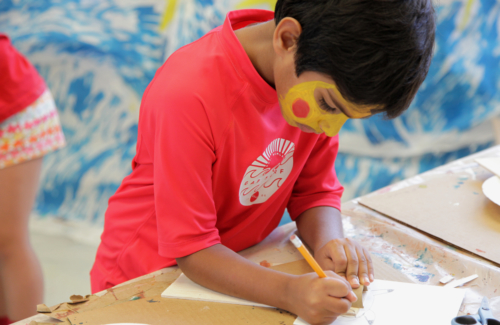Structuring An After-School Routine to Balance Homework, Fun and Rest

When you’re a kid, one of the sweetest sounds in the world is the dismissal bell at the end of the school day. But what happens next? When kids get home they may have hours of free time on their hands, and that can be hard for a young person to manage. They need routine to structure their after-school time to ensure they take care of their responsibilities, spend quality time with family members, and take care of themselves physically, academically and emotionally. But even adults can hear the word “routine” and quickly zone out with boredom.
Kids are more overly-scheduled than ever, and it’s crucial that they stay inspired, not overwhelmed. So how can you structure your kid’s after-school time to make it efficient but not a total drag? By finding the right combination of scheduling while also listening to their needs and feedback, you can strike a good balance. This can take a lot of pressure off everyone and help home life run more smoothly.
Structuring After School Routines Make the Most of Free Time
Getting your kid into a daily routine is emotionally healthy; it gives them a feeling of “normalcy” that makes them feel safe and comfortable. It helps them make the most out of free time while teaching them time-management skills that will help them get ahead later in life. To get started, think about your priorities.
Should your kid’s schedule be time-oriented or task-orientated? Everyone is familiar with a schedule that tells us what we need to do at any given moment. But if you write a list of “must-do” tasks, you can then let your kid decide when to do each one. The point of this is to teach them to prioritize while also giving them some agency in the decision-making. Allow them to follow their intuition and energy level and make a judgment as to when is the best time to rest or undertake a responsibility. No one expects their kid to be able to make this kind of decision for themselves every single day without some direction. But when they can say for themselves, “I think I’ll do my homework now and get it out of the way,” it shows they are becoming more responsible. And for any parent, that’s a beautiful thing.
Next, get organized. Find somewhere to post your child’s schedule, like on a whiteboard, where items can be checked off or edited. If you’re feeling especially crafty or want a retro vibe, you can create a felt board, which can also be used for telling stories.
When kids get home from school they may be tired or hungry. Just like adults who’ve had a long day at work, they need to decompress. Allow your kid to have some time when they first get home to chat, have a snack or just goof off. When they’ve have had enough rest and have gotten their second wind, you’ll definitely know. Then it’s time to decide how they’ll use their newly found energy before dinner and bedtime.
When to Do Homework
Homework is the biggest priority of the after-school routine. Doing homework teaches kids an important lesson about responsibility that will help them in their careers. The more you can help them get used to reserving time every day to sit down and do mental labor, the easier it will be for them to repeat this skill in college and in adulthood.
Do you tell your kid when to do their homework, or do you allow them to choose? A lot of parents think it’s best to get homework out of the way and want their kids to do it right after getting home. Teaching kids to get work done sooner rather than later can show them the benefits of not procrastinating. On the other hand, this can be mentally draining on a kid who, after a long day of social and academic stress, just wants to let their brain take a little vacation.
This is why some parents allow playtime or other fun, restful activities right after kids get home. They may and opt to save homework time for later, like after dinner. After-dinner homework has its benefits too, especially if you enjoy helping your kids with their homework. You can even work on your own project alongside your kids. This can help teach them to work well with others, which is a very valuable career skill.
Ultimately, if your kid has the maturity and good judgment needed to decide when to do homework, let them. But if they aren’t there, yet giving them a set homework time can help them get used to homework. A set-in-stone schedule helps kids who really need structure. But as time goes on and your kid gets used to doing the tasks they need to do after school, you can give them more flexibility.
“Me” Time, “Us” Time
Think about what other activities are important to you, your kid and your family. Because you aren’t together during the day, you’ll want to set aside some after-school time to spend together. This can be one-on-one or with the whole family. Some families like to do an activity in the evenings, such as play a board or video game, watch a favorite television show, tidy the house or learn something new together. And then it’s time for bed.
Getting ready for bed is a great way to teach your kid about self-care. They may spend each night taking care of their dental hygiene, packing their backpack for school in the morning, or choosing what to wear. Then it’s time to wind down before bed. Nothing helps kids settle down like a good, old-fashioned bedtime story; plus it’s an excuse to give your kid lots of hugs and cuddles. Finally, kids benefit greatly from a set bedtime, so you should keep that non-negotiable.
Maintain Your Routine With Summer Camp
An afternoon routine shouldn’t end when school lets out for summer. Because when school is out kids still need a daily structure. Sure, it may be fun for them to goof off for a little while. But it’s going to be a long summer, and your kid is going to need to get back to a routine that feels familiar and “normal”. So why not send them to camp?
At an innovation summer camp, they can get all of the structure they need while school is out, and have fun learning. They will spend their days enjoying summer, making new friends, and exercising their minds and bodies. Then when school is back in session they will have made lots of great memories and will be ready to learn and jump right back into routine.
Check out these innovation summer camps in your area to help establish a summer routine for your kids: San Francisco Bay Area, Southern California, and Chicagoland. Sign up for our mailing list to keep up-to-date on our camp happenings, innovation resources and registration information for our upcoming 2019 camp season.

